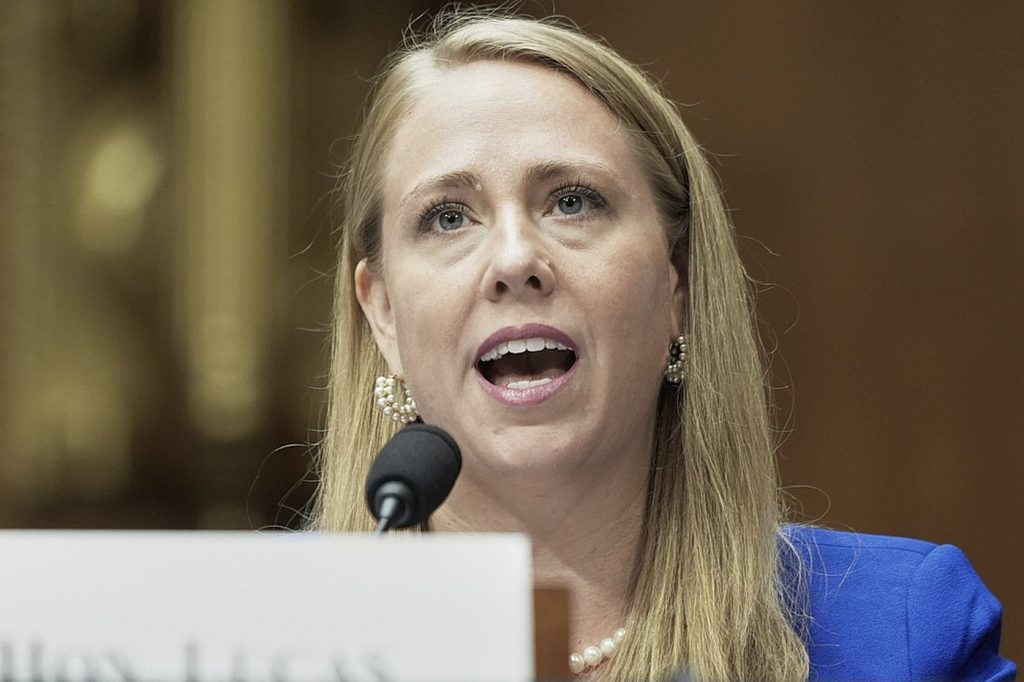On Thursday night, the Senate confirmed Andrea Lucas for another term as the commissioner of the Equal Employment Opportunity Commission (EEOC), reflecting a strong backing from Republican lawmakers for her agenda that includes targeting diversity programs, rolling back protections for transgender workers, and emphasizing religious rights in the workplace. The confirmation came through a 52-45 party-line vote, showcasing the division between Democrats and Republicans on civil rights issues.
Democratic lawmakers and notable civil rights organizations vehemently opposed Lucas' confirmation, arguing that she has allowed the EEOC to be influenced by the presidential administration. They highlighted her appointment as acting chair in January and noted her controversial actions, such as firing two Democratic commissioners before the end of their terms. Critics assert that these moves have undermined the agency's independence, a cornerstone of its mission since its establishment in 1965.
Lucas, who was originally appointed to the EEOC in 2020, has aligned herself closely with President Donald Trump's civil rights agenda. During her confirmation hearing last month, she stated that she does not view the EEOC as an independent body, a departure from her previous stance. This alignment includes adhering to Trump’s executive order defining gender in binary terms, leading the EEOC to drop lawsuits supporting transgender workers and to halt other related legal actions.
Moreover, Lucas has utilized the EEOC’s enforcement power to support the Trump administration’s initiatives against diversity, equity, and inclusion programs in private institutions, as well as addressing allegations of antisemitism. A notable success for the EEOC was securing a $21 million settlement from Columbia University over claims of harassment against Jewish employees. This case is part of a broader agreement with the Trump administration aimed at reinstating federal research funding for the institution.
In a statement following her confirmation, Lucas expressed her intention to continue the advancements she believes the agency has made under her leadership, including fostering a focus on merit-based hiring practices while securing substantial settlements for discrimination claims, such as the one concerning antisemitism at Columbia University.
The opposition to her leadership has escalated within Democratic circles, with Senator Patty Murray critiquing Lucas for distorting the EEOC's mission and for enabling discrimination against vulnerable groups. She also described the agency's actions as attempts to intimidate those who oppose Trump’s policies. Last week, legal and civil rights groups initiated a lawsuit alleging that the EEOC has unlawfully refrained from enforcing federal protections for transgender workers, further intensifying the controversy surrounding Lucas's confirmation.
Supporters of Lucas, including Republican senators and some business groups and religious organizations, have commended her for her dedication to dismantling policies established during the Biden administration that they believe overstepped in terms of worker protections for transgender individuals and other groups. The U.S. Chamber of Commerce publicly endorsed her confirmation, asserting that Lucas advocates for a balanced approach in the EEOC’s policies and decisions.
The EEOC, charged with investigating employment discrimination in the private sector, was created as part of the 1964 Civil Rights Act. The dismissal of the Democratic commissioners left the agency without the quorum necessary for key decisions. This situation is expected to change if the Senate confirms another Trump nominee, Brittany Panuccio, thus potentially reshaping the future direction of the agency.











